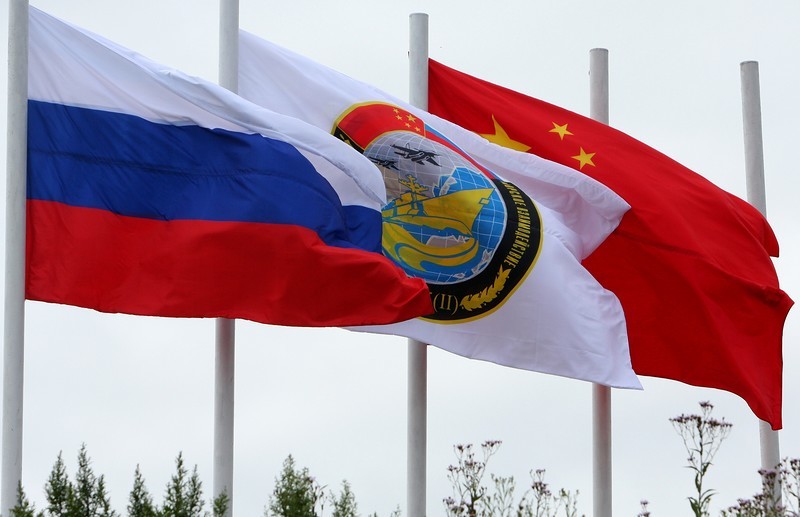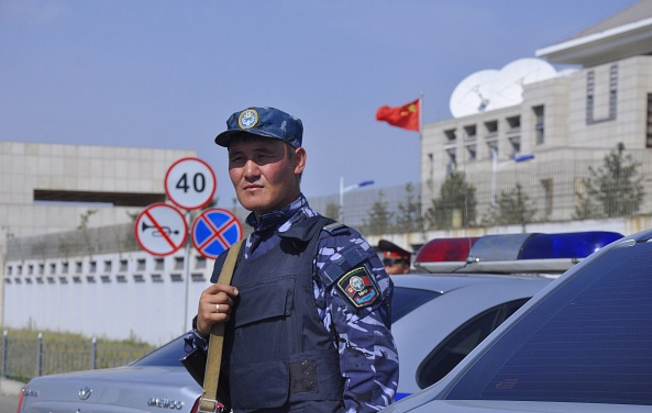Zhao Weibin, Researcher, PLA Academy of Military Science
Oct 04, 2016
The PLA should not only collaborate in US-led exercises to get familiar with American weapon systems and the tactics they employ, the Chinese should embrace the model and initiate joint exercises of its own. That would demonstrate its readiness both to face foreign intervention and to preserve regional security and stability as it assume mores global responsibilities.

Franz-Stefan Gady, Associate Editor, Diplomat
Oct 04, 2016
Countries such as China, Iran, Russia, and the United States are heavily investing in their cyberwar capabilities and are accumulating not just single cyber weapons but entire cyber weapon arsenals for use in wartime. Small and medium powers will need to start a public debate about how to tackle the growing threats from cyberspace sooner rather than later.
Wang Hanling, Director of National Center for Ocean Affairs and the Law of the Sea
Peng Sixiang, Master's Candidate at Department of Law, CASS Graduate School
Oct 03, 2016
China’s alleged militarization of the South China Sea isn’t supported by the facts, and the US definition of ‘militarization’ defies both common sense and international practice.
Susan Ariel Aaronson, Research Professor of International Affairs, Elliott School of International Affairs, GWU
Sep 29, 2016
In 1985, historian Walter McDougall wrote a Pulitzer Prize winning history of the Space Race. Therein, he argued that the space race wasn’t simply a competition between two nations to get into space, but rather a competition between two different systems and worldviews. The U.S. and China may be experiencing a similar phenomenon in cyberspace today.

Zhou Bo, Senior Fellow, Center for International Security and Strategy, Tsinghua University
Sep 28, 2016
The joint operations provide Chinese forces valuable opportunities to test their skills and tactics. But if the West is really concerned with China and Russia’s intentions behind these drills, it needs some soul-searching to ask what “common threats’ have driven the two countries to get closer faster than anticipated.
Yin Chengde, Research Fellow, China Foundation for International Studies
Sep 27, 2016
In the face of risks and disagreements, the two sides should restart negotiations, and sincerely embark on the road of resolving both the unsettled state of war from the 1950s and the current stalemate over the THAAD deployment in South Korea.
Jia Chunyang, Assistant Research Fellow, CICIR
Sep 24, 2016
In the wake of the recent embassy attack in Kyrgyzstan, China should not only continue strengthening anti-terror and stability-preservation efforts at home, but also pay greater attention to overseas terrorist threats, and improve its overseas anti-terror capacities.
Jin Liangxiang, Senior Research Fellow, Shanghai Institute of Int'l Studies
Sep 15, 2016
Constructive mediation rather than military intervention is urgently needed, but first all parties must be realistic about the situation on the ground, and open to a political transition through negotiation.

Tang Lan, Deputy Director, Institute of Information and Social Development, CICIR
Sep 08, 2016
The US government recently announced it would transfer governance of the Internet to the “global multi-stakeholder community” on Oct 1. This is a major step forward in global Internet governance reform since in March 2014, when the US National Communications and Information Administration formally declared it would surrender control over ICANN.

Kemel Toktomushev, Research Fellow, University of Central Asia
Aug 31, 2016
At this stage, it will be premature to immediately associate the blast at the Chinese Embassy in Bishkek with the larger context of ethnic separatism in China or Islamic radicalism in Central Asia, despite the high likelihood that Uighur separatist groups will be blamed for the attack in Kyrgyzstan. In general, this blast comes as an unpleasant and unexpected surprise both for Kyrgyzstan and China.
Back to Top

- China-US Focus builds trust and understanding between the U.S. and China through open dialogue among thought leaders.
- Our Offerings
- Topics
- Videos
- Podcasts
- Columnists
- Research Reports
- Focus Digest
- Stay Connected
-
Thanks for signing up!
- Get the latest stories from China-US Focus weekly.